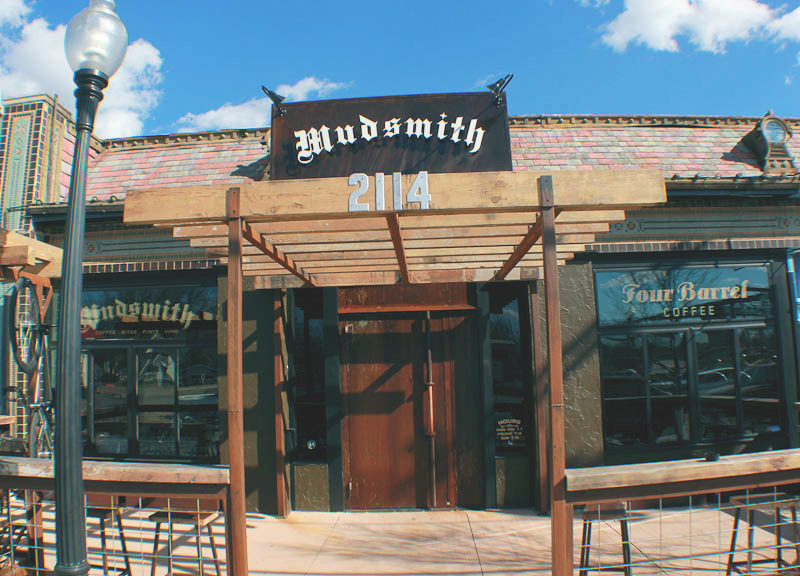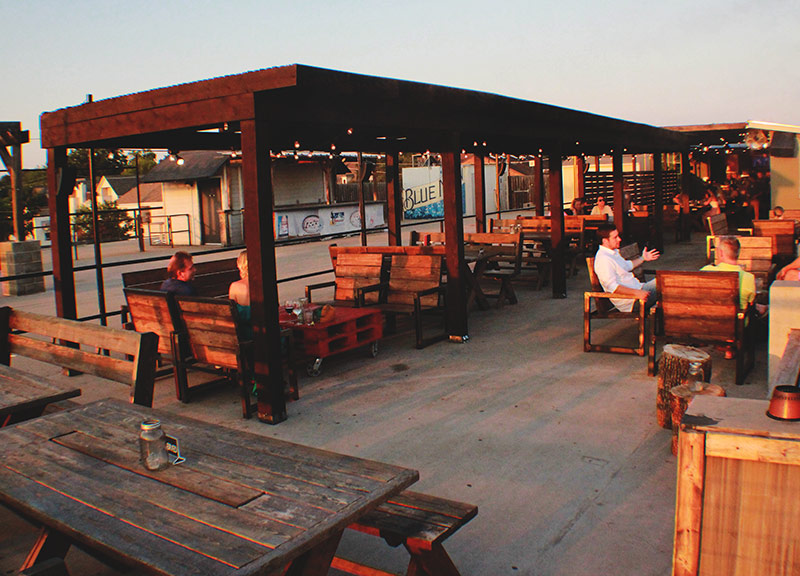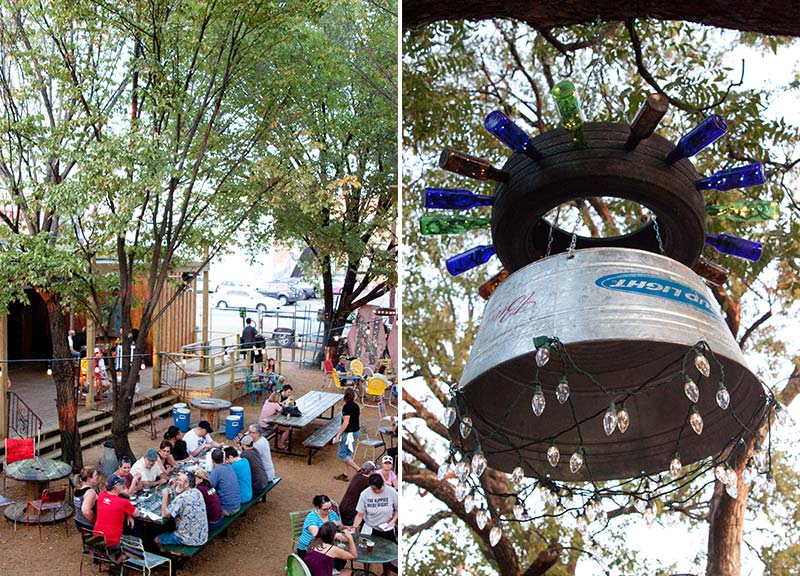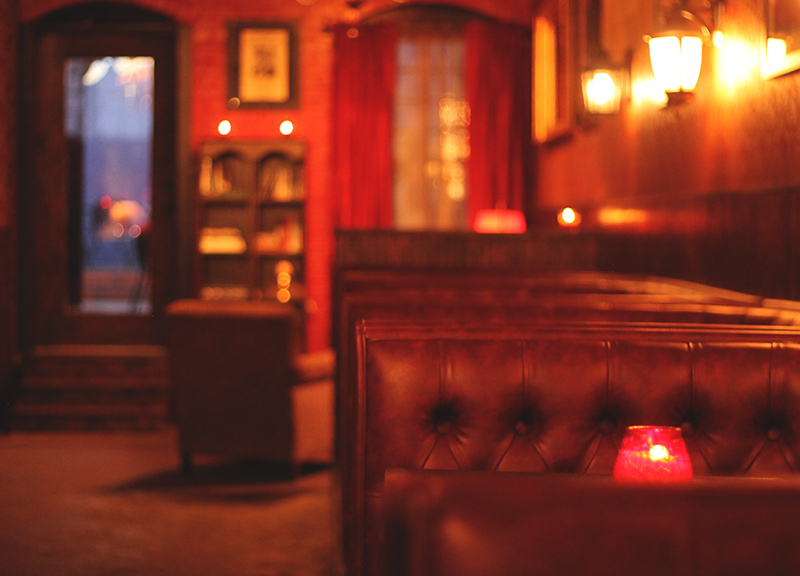Dallas Businesses Are Expanding Into Fort Worth At A Crazy Rate. Will They Receive a Warm Welcome?
It’s hard not to love the food and nightlife that’s available out in Fort Worth, especially when those options include such fine establishments as Twilite Lounge, Truck Yard, Breadwinners, Mudsmith, and — wait, huh?
That doesn’t sound right. Aren’t those all Dallas spots?
A little context might help: Dallas bars and restaurants made over $81 million in alcohol sales in May, which is good news if you enjoy thriving nightlife, and even better news if your income comes from that world. In turn, several local establishments in Dallas are doing so well that they’ve recently decided to grow their businesses by heading westward.
We’ve already mentioned Twilite’s upcoming addition of a second location out in Fort Worth’s Near Southside . And, if you’re a regular reader of local news, you already know about Truck Yard’s impending opening up of a spot in The River District, too. But these spots are not alone in this regard, not by a longshot. Revered brunchery Breadwinners is about to open its first Fort Worth location, too. And the same goes for Greenville Avenue’s hipster coffee haven Mudsmith and the nearby paleo enclave HG Sply Co. Meanwhile, rumors are swirling about town that more and more businesses will be joining these pioneers soon.
So what does it mean to see some of Dallas’ own hot spots encroach on Fort Worth? Does it give us civic bragging rights? Is this the sort of thing that our mayor likes to rub in the face of Fort Worth’s mayor?
Well, if the people responsible for revitalizing Fort Worth neighborhoods are miffed that they’re being swarmed with Dallas joints, they’re certainly not acting like it.

It’s worth acknowledging that Fort Worth, much like Dallas, is growing. Kind of a lot, actually. And a sizable majority of those new faces will probably venture out about town every now and again.
The Dallas-Fort Worth region was recently singled out for having the second-largest population growth in the nation, trailing only Houston. But Tarrant County on its own accounts for the sixth-largest growth increase in the U.S., with an increase of more than 36,000 residents in the past year. Moving your thriving business into a new, rapidly growing market — one that’s far enough away to not siphon revenue from your original location, but close enough to still be accessible — just seems like a smart play, doesn’t it?
And so groups like Trinity River Authority and Near Southside, Inc. (the group responsible for cultivating the neighborhood where Twilite Lounge will be headed) are actively seeking such Dallas businesses out by providing developments that will have long-running benefits for the area — not short-term growth, and not the sort of development that will require a lot of upkeep to sustain.

“[We’re] reconnecting with the river as part of our city,” Oliver says.
It’s a plan that involves conservation and cleanup, but also involves making smart moves when it comes to zoning, and, as Oliver puts it, “boring stuff like infrastructure.”
Terms like “boring” are bandied about pretty freely when it comes to development projects. But Paul Paine, president of Near Southside, Inc., has his own go-to phrases when talking about the duller elements of urban revitalization.
“It’s not sexy, and it isn’t visible,” he says when discussing some of the more important infrastructural checklist he faces, which includes such tasks seeking funds to improve the water lines in the neighborhood. Those are the kinds of things, Paine explains, that are hidden from plain view, but are improvements that will save developers on expensive headaches when they go about preparing a new building for whatever they’re doing with their space.
“If you’re a developer, [already having improved water lines] can save you a couple hundred thousand dollars,” he says.
So, no, maybe it’s not sexy. But those are some attractive savings. And that, these developers hope, will bring about amenities that will not only satisfy Fort Worth’s ever-growing population, but that will do so through options that those people can’t get in the suburbs. “Chain-averse” is how the Near Southside, Inc. team explains its approach to developing their neighborhood.
Trinity River Authority’s Oliver uses similar rhetoric, too: “It’s always cool to see bars and restaurants that aren’t chains come up,” he says.
Why not hold out for brand new, Fort Worth-originated concepts, then? Well, because you could be stuck waiting for a while. Since the recession of 2007 and 2008, it’s been harder and harder to come by the sort of small business loan that would enable someone to start something from scratch.
And so these Dallas businesses, with their records of success and fertile opportunities in sight, are taking advantage of Fort Worth’s potential. Is that unfair? No, but it’s worth acknowledging that the aftershock of financial ruin from almost a decade ago is still contributing to a relative lack of competition for space.
For his part, Paine says his group is “not proactively seeking tenants” from Dallas, although the word “proactively” suggests that maybe they’re not exactly sitting on their hands, either. That being said, none of the businesses I spoke to admitted to having been directly enticed by representatives from the city to make their move.
A few of these locations are simply moving into Fort Worth as part of larger regional growth plans. Breadwinners, for instance, already has a Plano location, and a source at Mudsmith noted that the Fort Worth location will be one of what was cryptically referred to as many more “general openings” in DFW.
Will Fort Worthians welcome this influx of Dallas establishments? Opening a restaurant or bar can be a dicey proposition in even the best of circumstances, and it’s hard to predict what will ultimately come of these expansions until they happen. What’s encouraging, however, is that some of these businesses are already talking about how they can ingratiate themselves into their new areas, and through means beyond just transporting their original models into new addresses.

“Fort Worth has some cool shit going on,” Twilite Lounge co-owner Danny Balis adds now. “Great bars, a killer music scene. We’re looking forward to being part of it.”
Truck Yard owner Jason Boso, meanwhile, says he looked at “Probably about 15 locations” before settling on his spot’s ultimate Fort Worth destination at the former home of the Crystal Springs Dance Pavilion. That connection to local history was part of the spot’s appeal, Boso says, and he intends to design Truck Yard’s Fort Worth spot while keeping in mind its connection to that iconic Western Swing venue, which once hosted some of that genre’s biggest names.
If nothing else, this kind of lip service seems to be buying these new business owners good will with Fort Worth developers — or at least with Megan Henderson, director of events and communication at Near Southside, Inc., who says that building that kind of community attachment is a vital component of making a successful move into these necks of the woods.
“You may have the best idea in town, but if you aren’t a community member who really cares about [local] investment… those businesses struggle,” she says.
Of course, it’s literally Henderson’s job to make it clear to the community that local businesses — yes, even the ones that started in Dallas — are ingratiating themselves into it. Which might explain why she has some thoughts about how these area businesses can win points in a city that has a history of sneering more toward Dallas than vice versa.
“It’s just about being present, and reaching out [to neighbors],” Henderson says. “[Simply] by moving your business here, you’ve become a part of our community.”
Like infrastructure development, forging personal bonds with potential customers might not be the sexiest concept. Still, it does help make you a good neighbor.

